Iran's Guards Threaten Further Revenge Attacks Against US

Iran’s Revolutionary Guard (IRGC) says that retaliatory military attacks against US targets for the killing of Qassem Soleimani in 2020 are still viable options.

Iran’s Revolutionary Guard (IRGC) says that retaliatory military attacks against US targets for the killing of Qassem Soleimani in 2020 are still viable options.
IRGC spokesman Ramazan Sharif was quoted by Iranian media as saying that “moves such as [the attack on] Ain al-Assad base [in Iraq] are still being considered and “will become operational in due time.”
Five days after Soleimani was killed by a US air strike on January 3, 2020, Iran fired ballistic missiles at the Iraqi base hosting US troops. No Americans were killed but reports at the time spoke of dozens of servicemen receiving concussion because of the strong explosions.
At the time, President Donald trump who ordered the killing said that Soleimani presented an imminent danger to US personnel and interests in the region. He was the commander of Quds Force and Iran's top military and intelligence operative in the Middle East.
Since then, the Islamic Republic has continued threatening revenge for Soleimani, and these threats were repeated during the third anniversary of his killing this week.
Plots were discovered in the United States aimed at assassinating former US National Security Advisor John Bolton and former Secretary of State Mike Pompeo.
Iran International reported in December that based on documents a hactivist group provided, an IRGC envoy went to Washington January 16, 2022, to carry out the plan, but the IRGC was unaware that an individual hired to kill Bolton in exchange for $300,000 was actually an FBI informant.
In August 2022, the US Justice Department charged a member of the IRGC in absentia with planning to assassinate Bolton.
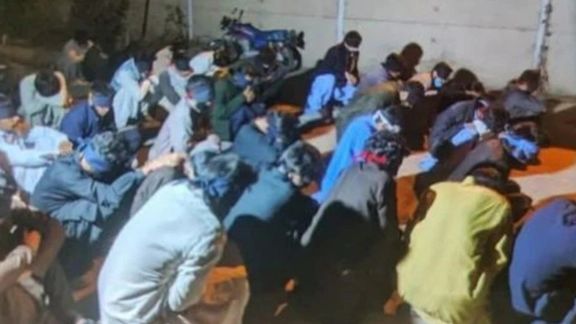
The Islamic Republic’s intelligence ministry says as of Wednesday at least 100 people have been arrested in the Sunni-majority southeastern city of Zahedan.
Intelligence ministry directorate in Sistan-Baluchistan announced that at least one hundred people, who it called "criminals", "armed robbers" and "illegal immigrants", were detained with the cooperation of the Islamic Revolutionary Guard Corps and the police.
Using the common rhetoric of the Islamic Republic authorities, the directorate claimed, "the illegal foreign nationals played an effective role in insecurity, creating terror and violent robberies in Zahedan."
Almost three months after the "Bloody Friday of Zahedan" mass arrests of Baluch citizens has begun in the Sunni city.
The Bloody Friday in Zahedan took place September 30, when security forces killed at least 93 people, and injured hundreds more as civilians protested.
On Monday, regime forces arrested at least 40 citizens in a joint operation in the flashpoint city.
Reports say the arrest of Baluch citizens has continued in the past few days, and according to activists at least one hundred citizens, including children with no birth certificates have been detained.
According to Baluch Activists Campaign website, the military commanders have attacked ordinary citizens in public places of Zahedan on the pretext of "arresting criminals and armed robbers".
Among the detainees were seasonal workers who had gathered at a square in downtown Zahedan. Agents have reportedly arrested them while running over them in military vehicles. The report said those who tried to escape to different areas of the city, have been shot.
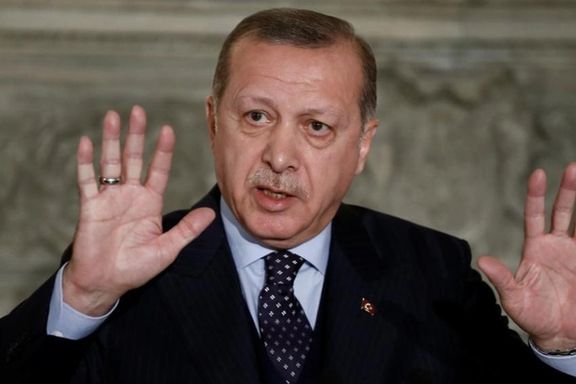
Turkish President Tayyip Erdogan said Thursday he may meet Syria's Bashar al-Assad, after their defense ministers met last week in Moscow with Iran absent.
In a speech in Ankara, Erdogan said the next step, following the landmark talks between defense ministers in Moscow, would be a trilateral meeting of the foreign ministers from Turkey, Russia and Syria, to further develop contacts.
"We have launched a process as Russia-Turkey-Syria," Erdogan said. "We will bring our foreign ministers together and then, depending on developments, we will come together as leaders."
Turkey has been the primary backer of Syria's opposition for more than a decade of war, while Russia has backed the Syrian government.
Iran, a major player in the Syrian war since 2011 and a participant in previous diplomatic efforts, was not invited to the meeting in Moscow.
The conflict continues into a second decade, although fighting is at a lower intensity than in earlier years.
With backing from Russia and Iran, Assad's government has recovered most Syrian territory. Turkish-backed opposition fighters still control a pocket in the northwest, and Kurdish fighters backed by the United States also control territory near the Turkish border.
A Turkish official said the Turkish and Syrian defense ministers met in Moscow on December 28., with the topics of migration and Kurdish militants on the agenda.
Turkish-Syrian rapprochement seemed unthinkable earlier in the conflict, and Syria's oppositions has urged Turkey to reaffirm its support.
With reporting by Reuters
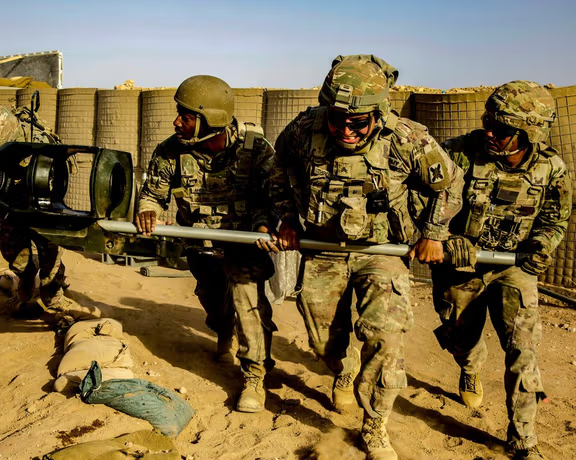
The United States Central Command says two rockets have targeted coalition forces in northeastern Syria, a day after the 3rd anniversary of Qassem Soleimani's death.
In a statement on Wednesday, CENTCOM announced that two rockets hit coalition forces at Mission Support Site Conoco.
However, it did not give any further details about who was responsible for firing the rockets.
“The attack resulted in no injuries or damage to the base or coalition property,” the statement read, adding that the “Syrian Democratic Forces (SDF) visited the rocket origin site and found a third unfired rocket.”
No individual or group has yet claimed responsibility for this attack, but Rami Abdul Rahman, Head of the Syrian Observatory for Human Rights emphasized that this happened one day after the third death anniversary of former IRGC Quds Force Commander Qassem Soleimani, saying “pro-Iranian groups” have launched the attack.
The Islamic Republic and its proxy militia groups provide military support to Bashar al-Assad's regime in Syria.
After Qassem Soleimani was killed in a US attack in Baghdad, the top Iranian officials repeatedly threatened revenge for his death.
On January 3, 2020, the US military, on the order of President Donald Trump, killed Soleimani in a drone strike near Baghdad International Airport, saying that he had been "actively developing plans to attack American diplomats and service members in Iraq and throughout the region."
Several hundred American soldiers are stationed in the north and east of Syria as part of the international coalition against ISIS.
In recent years, the coalition bases have been sporadically targeted by rockets or drones.
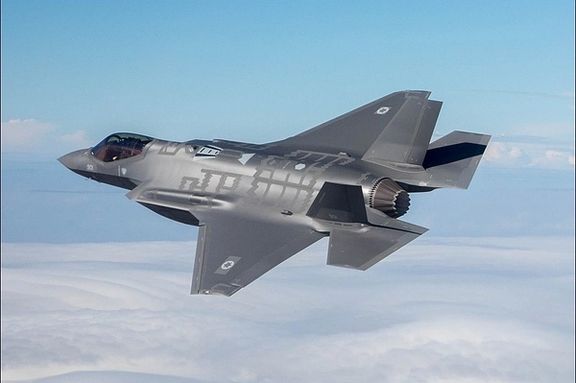
Israel and the United States have conducted air exercises in southern Israel in what an observer said, “could be signal to Iran in the ongoing nuclear standoff.”
Joint drills of Israeli F-35 jets and six US F-15 jets were based out of the Nevatim air base, where Israeli squadron commanders briefed Jerusalem Post military correspondent Jonah Jeremy Bob on training “for hitting targets in ‘deep’ enemy territory.” Bob wrote that the terminology was “often a euphemism for Iran and other countries who do not have immediate borders with Israel” and therefore should be seen a “signal to Iran.”
The return to power of Benjamin Netanyahu, heading a right-wing and pro-Jewish settler coalition, has fed speculation of an Israeli military attack on Iran. While outgoing prime minister Yair Lapid left office claiming Israel was better capable of striking Iran than ever, outgoing defense minister Benny Gantz told graduating air-force personnel late December they should be ready within “two to three years.”
Implying greater urgency, the Jerusalem Post’s report quoted a commander involved in Wednesday’s air drills that Israel’s three squadrons of US-supplied F-35s, even with some planes grounded for technical reasons, were “plenty, along with other Israeli fighter aircraft, to accomplish any mission that would need to be assigned.”
Netanyahu, whose warnings of an imminent Iranian nuclear bomb go back to the 1990s, is keen to stymie efforts by world powers to revive the 2015 Iran nuclear deal, the JCPOA (Joint Comprehensive Plan of Action). The Likud leader strongly backed President Donald Trump pulling the US from the JCPOA and imposing ‘maximum pressure’ sanctions impeding Iran’s access to international markets.
But Netanyahu and his ministers now stress their closeness to the administration of President Joe Biden, which took office pledged to restoring the JCPOA but has been unable to agree terms with Tehran. Netanyahu’s call this week to win ‘global opinion’ against Iran suggests he thinks he can shift Biden in the direction he wants.
According to Israel Hayom, the Israeli newspaper owned by the Adelson family, Antony Blinken, the US Secretary of State, told Eli Cohen, Israel’s foreign minister, by phone January 2 that the JCPOA was finished. But the State Department read-out of the call referred only generally to a “threat from Iran,” did not mention the JCPOA, and stated Blinken had “emphasized the continued US commitment to a two-state solution [for Israel-Palestine] and opposition to policies that endanger its viability.”
US concerns over the likelihood of the Netanyahu government speeding up Jewish settlements in the occupied West Bank are not just that demographic changes under what rule human rights groups have called ‘apartheid,’ doom the ‘two-state solution’ that Washington still formally backs. The recent World Cup in Qatar highlighted popular Arab support for Palestinian rights.
Netanyahu has also said he wants to extend Israel’s Trump-brokered ‘normalization’ agreements with some Arab states, stressing an Iranian threat. But even the United Arab Emirates, which signed a ‘normalization’ agreement with Israel 2020 and has perhaps little to fear from public opinion, stressed at the time its support for a Palestinian state.
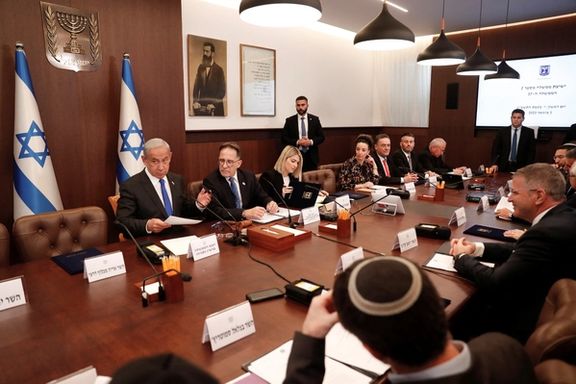
‘Keep your friends closer’
There is also nuance in the US-Israel military relationship. Washington’s 2021 shift of Israel from its European Command (EUCOM0) to CENTCOM, its Middle Eastern command, has been followed by talk from leading US officials of closer military cooperation.
But some analysts pointed out this works in two ways, and may help the US rein Israel in. Newsweek magazine in December quoted a senior US intelligence official that Israel “was coming out of the closet, allowed now to openly associate with the [US] military while at the same time being denied access to another closet.” One third of Hebrew linguists in the US government “work in intelligence collection and analysis specifically related to spying on Israel,” including its nuclear arsenal, Newsweek reported.
“The more that Israel is a credible military opponent of Iran, the very reason for this shake-up, the more that they are also suspect for the very capabilities that we are helping to create and improve,” the official told Newsweek. “This is a case of ‘Keep your enemies close and your friends closer.’”
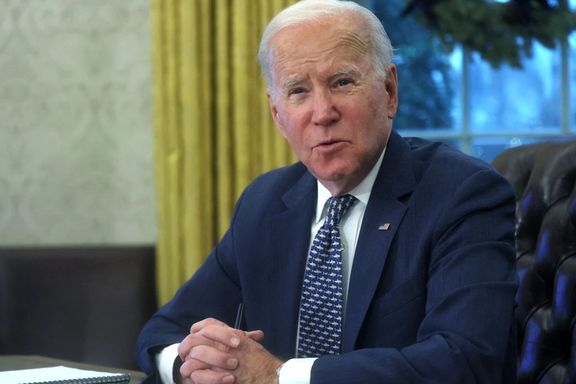
The United States is looking at ways to target Iranian drone production through sanctions and export controls, the White House said on Wednesday.
White House National Security Council spokesperson Adrienne Watson said in a statement Wednesday that Washington is talking to private companies whose parts have been used in production of the drones.
"We are assessing further steps we can take in terms of export controls to restrict Iran’s access to technologies used in drones," read the statement.
According to a Ukrainian intelligence assessment obtained exclusively by CNN, parts made by more than a dozen US and Western companies were found inside a single Iranian drone downed in Ukraine last fall.
The United States has previously imposed sanctions on companies and people it accused of producing or transferring Iranian drones that Russia has used to attack civilian infrastructure in Ukraine.
The Islamic Republic claimed Monday that Ukraine has never submitted any proof of Iranian-made drones being used by Russia in the war, as Russia launched another large attack.
Ukraine said December 13 that it provided Iran with the evidence. "We are not surprised by yet another objection from Iran regarding the supply of weapons to Russia. During the technical meeting, Ukrainian experts provided the Iranians with the sufficient evidence," Foreign Ministry spokesman Oleg Nikolenko said during an interview with Kyiv-based news agency Interfax-Ukraine.
Iran’s decision to supply weapons to Russia has played a major role in the deterioration of its already frayed ties with Europe that has put nuclear talks with Tehran on the back-burner since evidence emerged of the kamikaze drones being launched by Russia in October.